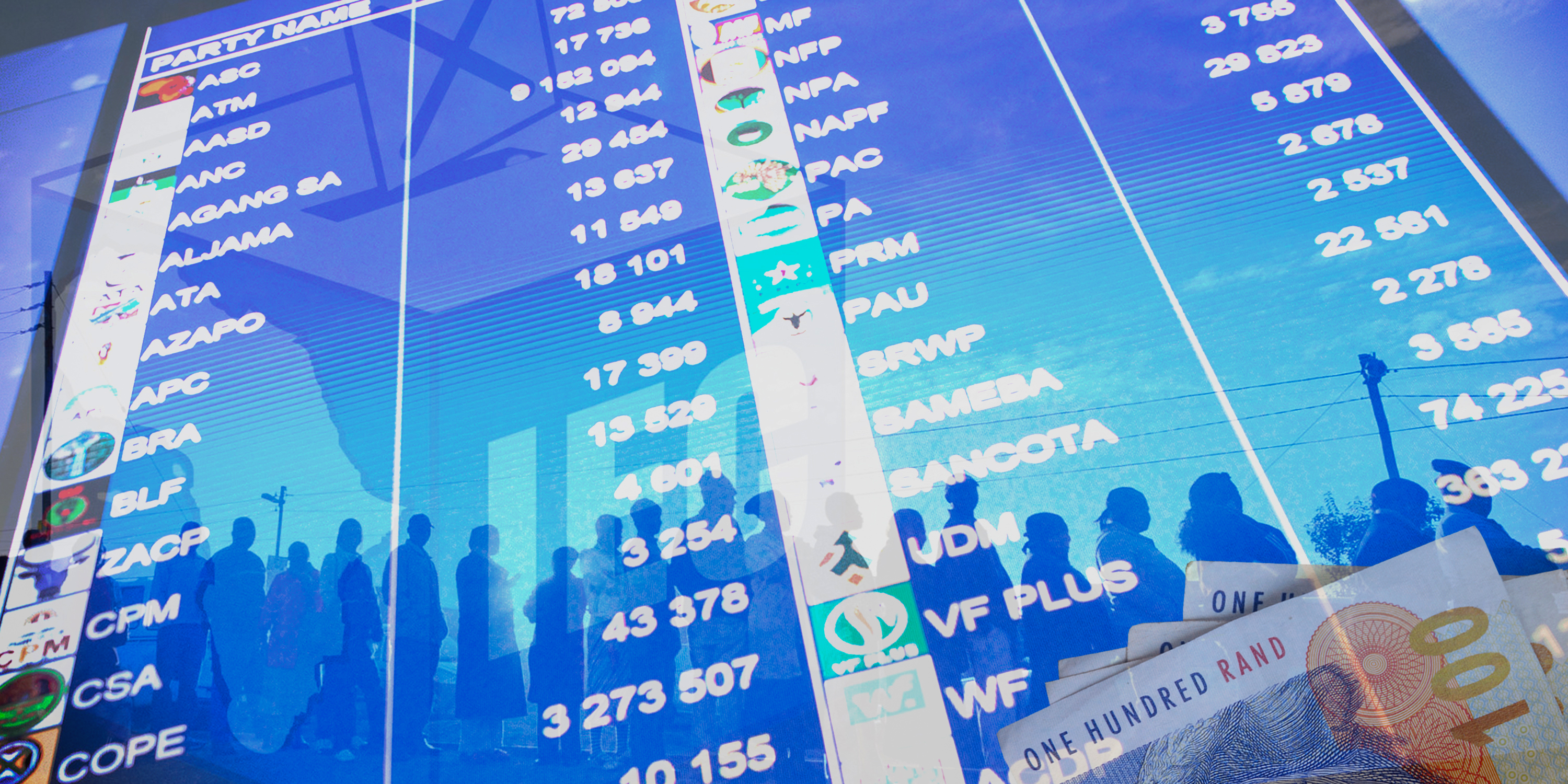‘Programme 2 (delivering free and fair elections) is not currently fully funded — shortfall to be funded from 2023/34 retained surpluses,” said an Electoral Commission of South Africa (IEC) briefing document to the home affairs committee on Tuesday.
Simply put: there’s not enough money in the kitty for the upcoming elections, but if the National Treasury agrees, the IEC will use its savings from the 2023 non-election year to ensure the 29 May poll is fully funded.
The IEC deputy CEO of electoral operations, Masego Sheburi, told MPs, “We have created savings that will help us for the lean periods if we are able to hold on to them after approval by National Treasury.”
Right now, R1.29-billion has been set aside for the general election — just over half of the IEC’s R2.4-billion allocation for the 2024/25 financial year from 1 April.
Getting approval from the National Treasury to hold on to its savings and use these for the 2024 elections is crucial. However, shifting money around is a bit of a juggle: while the elections are scheduled for 29 May, the National Treasury is set to consider requests to retain surpluses only from August onwards.
“We did receive additional cuts in January... There is a lot of ongoing discussion with National Treasury,” IEC CFO Dawn Mbatha said at Tuesday’s home affairs committee meeting.
Funding 2026 elections
What’s possible for these elections is not doable for the 2026 local government elections which are already on the IEC radar because it takes about two years to prepare for polls.
“It should be noted that a R607.2-million budget cut across 2025/26 and 2026/27 [financial years] has resulted in the 2026 local government elections not being fully funded,” the IEC briefing document said.
Perhaps the National Treasury will find extra money before 2026. The commission’s needs are known. According to the Estimates of National Expenditure, over the next three years, “The commission will focus on conducting the 2024 national and provincial elections, and preparing for the 2026 local government elections.
“This will entail the procurement, printing, distribution and warehousing of registration and election materials; rental and infrastructure payments for about 23,400 voting stations, amendments to ballot papers as a result of legislative changes; the appointment and training of an estimated 350,000 electoral and expansion staff ... technological improvements such as rewriting candidate nomination, ballot generation and election result systems...”
Watershed elections
In his 2024 budget, Finance Minister Enoch Godongwana allocated R350-million to the SA Police Service and SA National Defence Force “to support” elections, and R200-million for political party funding “to prepare” for elections.
The upcoming elections have been widely described as a watershed moment amid predictions by pundits that the governing ANC may lose control, and the debut of independents.
For the IEC, much of the financial pressure is linked to the new third ballot paper needed now that independents, in terms of the Electoral Amendment Act, can contest for seats in the National Assembly and the provincial legislatures.
The IEC will need additional staff at voting stations, addresses of which will be published by 12 April, according to the IEC staff election timetable whose deadlines are hard and fast.
Read more in Daily Maverick: SA’s polls timetable ‘cast in stone’, says IEC, urging parties to meet registration deadlines
It’s not yet known how many independents will contest — 8 March is the deadline for submitting candidates’ names and, for political parties, lists of candidates. Names will be released for public scrutiny and objections can be lodged over two days from 26 March, according to the IEC election timetable, with a final list of would-be public representatives published on 10 April.
March is also the deadline for the Independent Communications Authority of South Africa (Icasa) to finalise its elections broadcast regulations for the “equitable treatment” of all poll participants and their adverts. It’s the first update since 2014, triggered by the inclusion of independents. According to the briefing documents to MPs, the “project is on track”.
Panel behind schedule
Not quite on course is the nine-strong election reform consultation panel. It was supposed to be established within four months of the Electoral Amendment Act coming into force, according to section 23, to “independently investigate, consult on, report on and make recommendations in respect of potential reforms of the electoral system”. Its report is due a year after the 2024 poll.
But the panel is already 4½ months behind schedule. The Electoral Amendment Act came into effect on 19 June 2023 following a presidential proclamation, and the panel should have been established by 18 October. By now the panel should be conducting research and preparing for its public participation processes after this year’s elections.
 Minister of Home Affairs Aaron Motsoaledi. (Photo: Leila Dougan)
Minister of Home Affairs Aaron Motsoaledi. (Photo: Leila Dougan)
The election reform consultation panel was a last-ditch response to widespread vocal protests after the electoral amendment legislation did not introduce constituencies. Home Affairs Minister Aaron Motsoaledi took a narrow technicist view in a lawmaking process that saw Parliament twice having to ask the Constitutional Court for extensions.
“What is planned is for me to consult the IEC and come and announce the names to you,” Motsoaledi told MPs, saying the past two weeks had been so busy he’d not been able to meet the IEC. “We are really hoping by next week we have done so.”
Meanwhile, MPs are racing against time to process the Electoral Matters Amendment Bill that brings independents into the political funding and donation declaration regimen. The IEC says the law must be passed by Parliament and signed into effect by the President before 29 May.
It’s a hard deadline — if not met, it will have an impact on the elections. DM




 Minister of Home Affairs Aaron Motsoaledi. (Photo: Leila Dougan)
Minister of Home Affairs Aaron Motsoaledi. (Photo: Leila Dougan) 